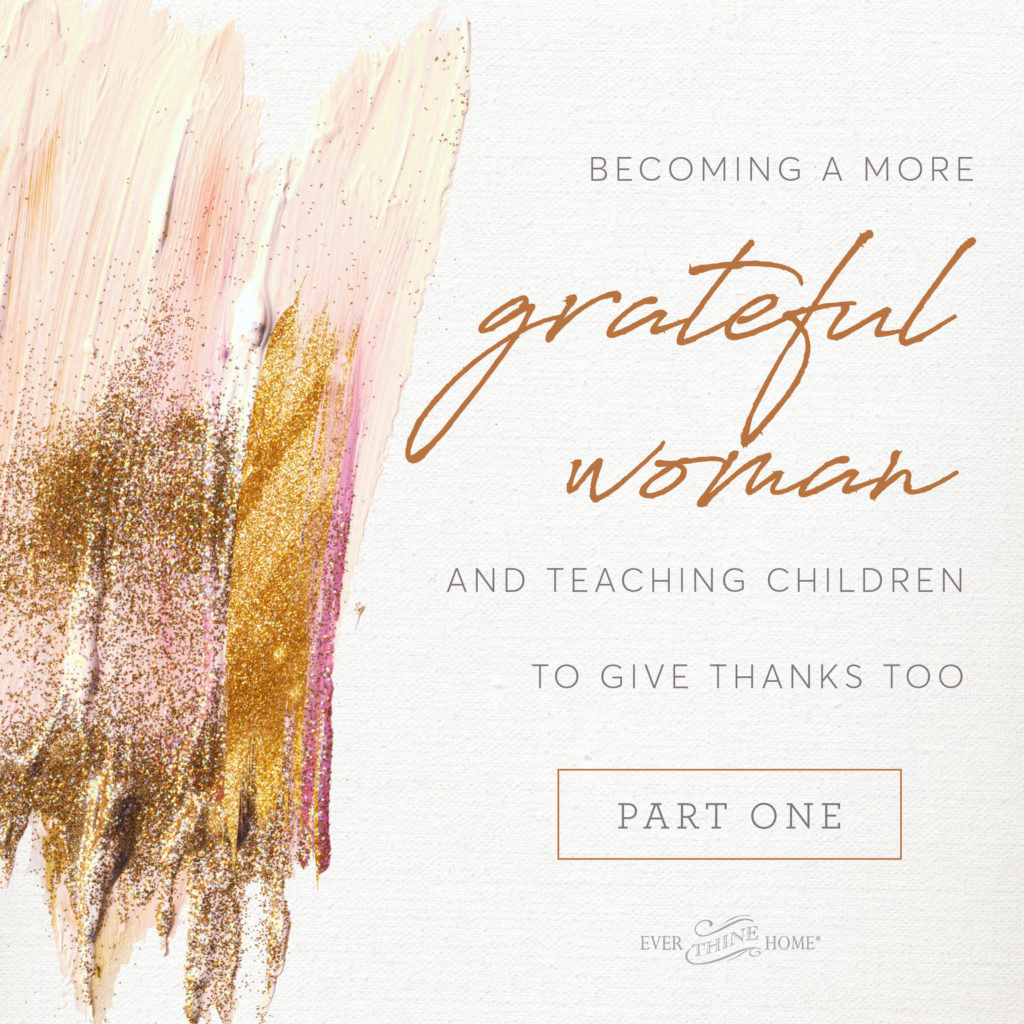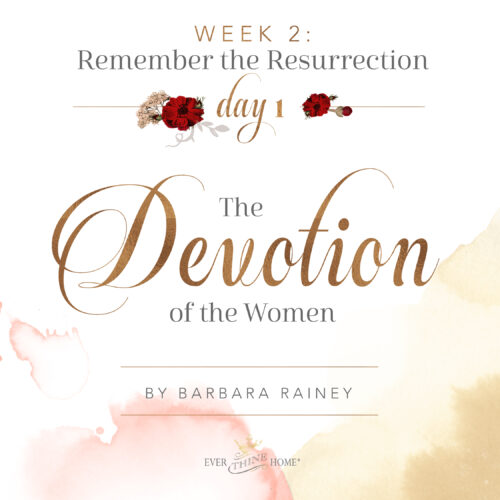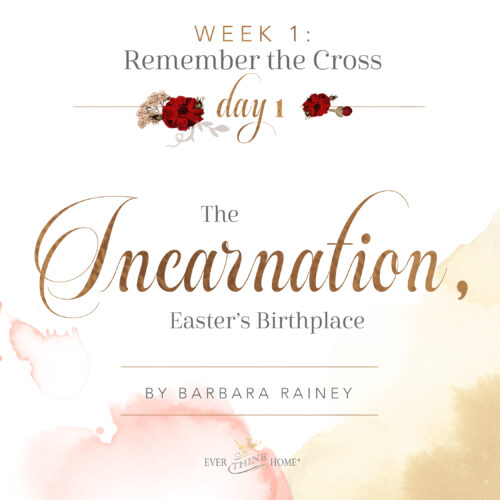
While there were many things that I loved about being a mom, I hated it when my kids complained, often multiple times daily. With six children someone was always unhappy about something – what they had to eat, where they had to sit, who they had to sit next to, what they had to wear, and on and on. None of them seemed to mind voicing their unhappiness. Complaining was as natural as breathing for my children.
I wanted more grateful kids. And I knew I could use a thanksgiving booster too, so, I took it as a personal challenge to develop in my children an attitude of gratitude.
We started by memorizing some Bible verses and by regularly encouraging them to focus on the positives rather than the negatives. I taught my children to say thank you often; to teachers, to other adults, to friends, and to write thank you notes for birthday and Christmas gifts as soon as they could print their names.
It also occurred to me to use something we all loved—reading together—to introduce my children to role models of faith and gratitude because the two often go together.
Getting to know people who accepted their discomforts and limitations with faith and gratitude will inspire us and our children to think differently about our own lives. These men, women and children of faith will help us all choose to be more grateful. Give yourself and your children role models of thanksgiving.
Ultimately, gratitude is a choice of the will.
In the next four weeks we will be sending you four stories to read as a personal devotion or at the dinner table or at bedtime to grow your habit of thanksgiving.
May you become a more grateful woman and inspire your family and others to discover the joy that comes when we choose to give thanks. An attitude of gratitude acknowledges God’s loving involvement in the circumstances of our lives.

An eight-year-old, whom we’ll call Amy, wrote in her diary:
Today I forgot to brush my hair and my pencils all broke. My brother goes around the house screaming and bothering me. I can’t not take anymore. I almost feel like running away, but I can’t because I simple have no place to go. Darin is a pain at school. Mr. O’Neil picks John all the time. It has been a bad day. I’m glad nothing will be rong in heaven!
We all have bad days; sometimes we have several in a row. Often our bad days are simply full of nuisances like Amy’s little brother, or a driver in front of us who is going so slowly we’re late for an appointment, or the grocery store running out of the one item we need for dinner. The vacuum breaks, our favorite tee shirt gets lost, our cell phone keeps dropping calls, a neighbor complains about where we put our trash can. It’s pouring rain—again—and the kids are stuck in the house all day. Inconveniences and inconsiderate people can make for bad days.
But think for a moment. Is it possible that God is using that slow driver in front of you to protect you from a wreck? When you lose a valued possession, might God be teaching you contentment? When someone in your life is being difficult, could God be giving you an opportunity to pray and see what He will do?
Proverbs 16:9 says, “The mind of man plans his way, but the Lord directs his steps.” Are you willing to look for the good that God intends in something that may seem bad to you?
Matthew Henry was a Puritan preacher from the late 1600s. Like our friend Amy, he once wrote in his diary about something bad that happened to him. One day, while walking home in London, he was robbed by a couple of men who jumped him from the shadows of an alley. Being robbed is hardly an everyday nuisance—it’s much more unsettling, more of a personal violation that can leave one feeling vulnerable and frightened.
Reverend Henry probably felt those things, but what he wrote that night in his journal is very instructive: “Let me be thankful, first, because I was never robbed before; second, because although they took my purse, they did not take my life; third, because although they took my all, it was not much; and fourth, because it was I who was robbed and not I who robbed.” What a great perspective on a difficult situation!
Matthew Henry chose to look for the good that was hidden in the bad. And by doing this he showed us how important it is to focus on the positive that God wants us to see in every situation in life. It’s always there; we just have to choose to look for it.
When we give thanks, we are saying to God that He is good in all that He orders for our lives. We are filling our minds with the larger truth about our situation and about Him, not just feeling sorry for ourselves that bad things have happened.
Thanking God is not a magic wand that makes everything perfect, but it does bring balance to our emotions to keep us from feeling only sad or lonely or unhappy.
What hard things have happened to you recently? Are you willing to look for the hidden good in them? Do as Matthew Henry did and write down what you can be thankful for in your hard situation. And if you have children or grandchildren, help them learn to be grateful by finding the good in the bad, naming those gifts and writing them down to be remembered.




Love thisBarbra praying for God togive me a more grateful heart and that slow car in front of me kept me from speeding because I was late then seeing a police officer and getting a ticket , God’s Grace!
Amen! Thank you for the reminder. I’m finding that this goes right along side of one of the last posts on being thankful and honoring our husbands. It sometimes feels a little contrived to be grateful when things aren’t going well, but realizing that it’s actually an attitude of trust in God to say thanks, that it is more a reflection of our inward soul to go around whining like a pauper when God has called us differently is astounding to think. I am very appreciative of the reminder and also a concrete way in which to train my children.